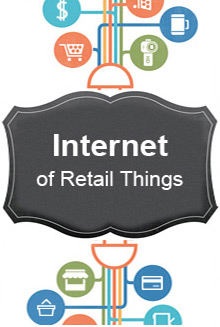Akash is a software engineer and when he passed out from his engineering college, he got the dream job with one of the leading IT companies as a software engineer. He joined the company with great enthusiasm and zeal to build a long career with the organisation. His induction went off well; it was an exhaustive training program for three months with 90 percent classroom training. He was very excited to take a leap into the software development platform. After the training program was completed, Akash was introduced to his team and manager and thereon, started his journey in the IT industry. When he joined the team and the project, he was oriented with the Dos and Don’ts at work, which included certain restrictions on carrying the work/data home and accessing some of the social media websites while being at work. Akash, being a Gen Z, did not like this fact but continued working with some dissatisfaction.
After a few days, he met his friends who talked about how happy they were with their respective jobs and organisations. Initially, Akash was very thrilled with the brand name and the compensation he received. However, he was surprised to see that there were people who got less salary compared to what he gets or a newer brand to work with, yet, they were happier and proud about their organisation. The reason was very simple. His friends were given a lot of flexibility at work. They were getting the SMART connected experience in their organisation. The company gave them most of the options for convenience in their day to day work, and also, while they were on the move. Their company was a Next Gen IT company which believed in ‘telecommuting of its employee’.
Unlike Akash, employees need flexibility at work, more mobility and information anywhere and anytime for working seamlessly.
We live in an era where we are working on global projects, global customers and within global markets; hence we are required to stay available 24X7 for any necessity or support to our teams. In these situations, telecommuting comes as a big relief, satisfaction and a sense of freedom to the employees.
When we are talking about productivity, we should talk about the factors that enhance productivity. In the current scenario, it’s no more about Productivity Management, it’s about Productivity Enhancement. Today, telecommuting enhances the productivity multi-fold and also motivates the employees to give their best at work or towards their organisation.
Telecommuting comes with certain benefits, such as:
- Increased employee productivity by giving them flexibility and freedom to work anywhere and anytime. Productivity is no more the measurement of Input Vs output, it is about enhancement of the individual’s potential and it can be improved by providing them a favourable work environment;
- Lowered absenteeism of the employees. It is observed that mainly female employees take a leave when their children or family members are unwell and need to be taken care of. In other cases, it is some small administrative work of a few hours which restricts the people to come to work. A facility such as that of telecommuting will help people manage these small things while being at work, and stay on top of the things. Absenteeism can surely be controlled to an extent by this facility;
- Enriched work life balance for the employees by providing various benefits of learning while on the move, flexibility in communicating; client calls and online meetings through bridge calls and work from home on certain days;
- Companies are adopting wellness and stress level reduction initiatives by promoting wearable devices and mobile apps for employee wellness activities. Many companies have launched comprehensive wellness programs for their employees and manage it through mobile applications and dashboards. There are gyms, yoga, aerobics, and TAICHI classes, which are being provided to employees to keep themselves relaxed and engaged in extracurricular activities outside work. There are virtual walkathons being organised to motivate people to stay more active and this can be monitored through smartphones with people staying connected to their colleagues while at home or travelling;
- Lesser attrition amongst Gen Z and Gen Y with companies encouraging telecommuting as one of the facilities for its employees. Telecommuting works as a motivating factor along with the traditional thinking of a high package and brand values for the people. Now the Gen Y and Gen Z are prioritising companies that have flexibility at work and can be social and mobile friendly as well so that employees have access to all the information on their portable devices;
- Better employee satisfaction can be achieved by providing telecommuting or SMART connected experience to people. They will find themselves in a better position to perform, within a mobile environment, rather than in a traditional environment of a 9 to 6 job.
To effectively improve the employee experience & the telecommuting system, the business should also consider:
- Enhanced secured systems for the out-of-office work facility with remote connectivity along with identity and access threat management. Data Protection is constantly evolving;
- Integrating all means of communication to a network that can work well for people at remote locations.
Telecommuting is also becoming very popular and critical in engaging employees. Companies are developing mobile applications where they can run their engagement activities on the move. Employees can participate in those activities whilst at work, at home or on the move. Companies run jam codes, gamefied engagement activities, online contests, wellness activities, quizzes, etc in order to keep employees motivated.
Companies have facilitated Intranet access so that employees can apply for leaves, access important company updates, policies as well as avail other benefits whilst being away from office. Telecommuting has proved very effective for companies wherein its employees are based out of multiple locations globally, and this helps connect people faster, without times zone constraints.
Learning on the move has also taken a fast pace recently and employees prefer to have online versions of technical or non-technical learning programs. Organisations are promoting e-learning through videos, TED talks and gamefied learning platforms on mobile devices. This saves time and provides flexibility to the employees to finish their required learning hours in their own space and time. The current generation of people does not want to attend full time learning classes as it is difficult for them to dedicate an entire day in training programs. Companies are coming up with innovative ways to engage employees so as to enhance their skill sets on regular basis. Here, inclusion of mobility or telecommuting is the key to decide the right option. Every learning platform is nowadays coming up with alternative mobile devices for accessibility.
Corporates are coming up with the concept of no-fixed or assigned desks. People have plug-in/plug-out desks and can work from home or any other branch or office of the same company. This way, organisations save on a lot of fixed costs such as desk, electricity, transport, food and beverages, housekeeping, etc.
Over all, Telecommuting can provide solutions to a lot of challenges faced by companies with their employees. Companies have to open their doors with all these facilities to their people. Although this sounds extremely convenient, telecommuting also comes with a lot of responsibility and requires self-discipline and control. Employees need to be more responsible and skilled while utilising these benefits of telecommuting, which will lead to the attainment of maximum benefits.
Published in: People and Management

Gaurav is a former Happiest Mind and this content was created and published during his tenure.







